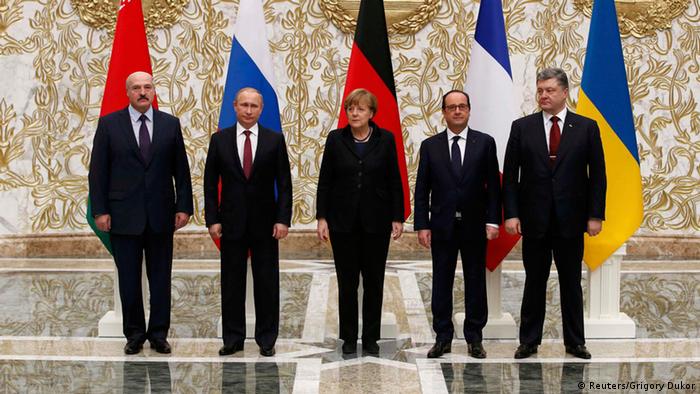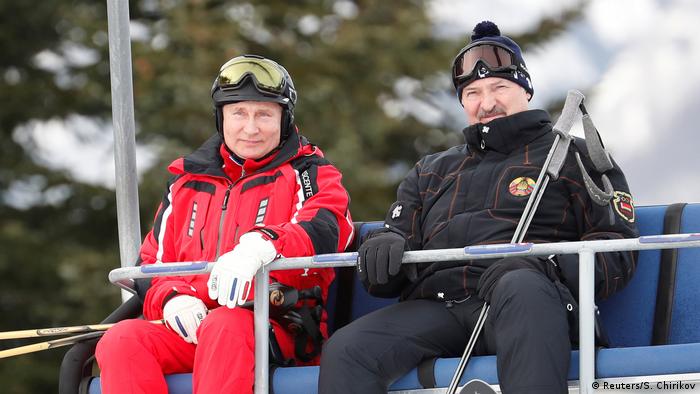For 25 years, ruled by Alexander Lukashenko of Belarus. His reputation as “Europe’s last dictator,” could he drop. Probably the greatest challenge before him, however.

Belarusian President Alexander Lukashenko
He is now the number one. Since the resignation of the President of Kazakhstan Nursultan Nazarbayev in March, the white Russian, Alexander Lukashenko, the longest-serving head of state in the post-Soviet space. The 64-year-old is the sole ruler, with the distinctive moustache celebrates on Wednesday 25. Makes the anniversary.
Lukashenko, an authoritarian father of the country
The head of a sovkhoz, a large state-owned agricultural company, has on 10. July 1994 the first President of Belarus elected. At that time, the former Soviet Republic on the Eastern EU-border was only for three years, regardless. At that time, Lukashenko called in the vernacular affectionately “Batjka” (father). The style of leadership of a country, father of the President remains true to this day. He doesn’t care that cows are dirty, and enough food get. This is typical of Lukashenko. He presented in March during a visit to an agricultural operation, and dismissed because of bad animal husbandry a number of officials, including the Minister of agriculture.
About Lukashenko, one often hears that he had received in his Republic, with around ten million people, a kind of “Mini-Soviet Union” in an upright position. What is meant is that the relatively successful industrial and agriculture, and benefited from state support and, above all, of the political Alliance with Russia. But this also led to dependency, which Russia uses as a means of pressure. Such as import restrictions on Belarusian milk were imposed products.

The Belarusian President is happy to state media as a simple man of the people present
One of the downsides of his reign, the highly personalized authoritarian Regime. Lukashenko relies on the secret service, the KGB, by the name of white Russia, until today, as once in the Soviet Union. By means of a Referendum, he allowed the laws and change the Constitution to get more Power and to be able to have unlimited re-elected. The Parliament was censored, stripped of power, the liberal Opposition sidelined by the media. Some opposition politicians disappeared without a trace, protests were quelled.
Valerij Karbalewitsch, policy expert and author of a Lukashenka biography, sees two reasons for the emergence of the authoritarian rule in Belarus. “For one thing, Lukashenko was power hungry and wanted no restrictions”, so Karbalewitsch compared to the DW. “On the other hand, there was in society a yearning for order in the Soviet sense of the word.” In the West, Lukashenko was seen as “Europe’s last dictator”. Against him and his elites were imposed by the European Union sanctions.
Rapprochement with the West after 2014
However, these times are at the latest approach for Russia against the Ukraine in 2014 is over. Lukashenko has positioned itself in this crisis will be neutral and won international Reputation thanks to the negotiations to Eastern Ukraine in the Belarusian capital of Minsk. The President was also some opposition and opened the way for the lifting of EU sanctions, what happened to 2016. In a democracy, the country had become still. According to the UN special representative on the situation of human rights in Belarus are violated, human rights are still regularly.

After the outbreak of the Ukraine crisis, Lukashenko, Minsk has been offered as a venue
The rapprochement with the West has reached in February its climax. Was planned to be the first participation of Lukashenko at the Munich security conference. But the trip was canceled. The news came after a Meeting of Lukashenka with Russian President Vladimir Putin. This gave rise to speculation about a possible connection.
Growing pressure from Russia
Lukashenko used from the beginning of a particularly close relationship to Russia. In 1997, he founded with Putin’s predecessor, Boris Yeltsin, a joint Russian-Belarusian state, a Union that exists, but rather on the paper. Belarus is also a founding member of the Eurasian economic Union, a pet project of Putin with the aim of integrating the former Soviet republics again.

After this Meeting with Putin in Sochi, Lukashenka has cancelled his visit at the Munich security conference
However, in the past few months felt Lukashenko increasing pressure from Moscow, to bind still more closely. Russia’s economic policy has led to Belarus less dependent on Russian Oil, which can benefit further processing of the raw material and the sale to the West. There was also speculation that the Kremlin wants to the project of the Russian-Belarusian state, to revive, to allow for Putin’s re-election. The Kremlin chief may not be a candidate after two terms of office in 2024. Lukashenko granted in such plans, if there is a cancellation. He criticized Russia’s unusually sharp, avoiding, however, direct attacks on Putin.
The biggest challenge is Lukashenko probably still: be the finish. Recently, he announced that the next presidential election as planned in 2020. He is expected to compete again. Lukashenko was a “hostage” of the system that he had created himself, writes Valery Karbalewitsch in his Lukashenko-biography. “Lukashenko has no other choice than to try for life to remain in Power”, so Karbalewitsch. His departure would lead to a regime change, a successor was hardly conceivable.
Video 04 view:35 Share
Russia: food white on graves
Facebook Twitter google+ send Tumblr VZ Xing Newsvine Digg
Permalink https://p.dw.com/p/3KqFR
Russia: food white on graves